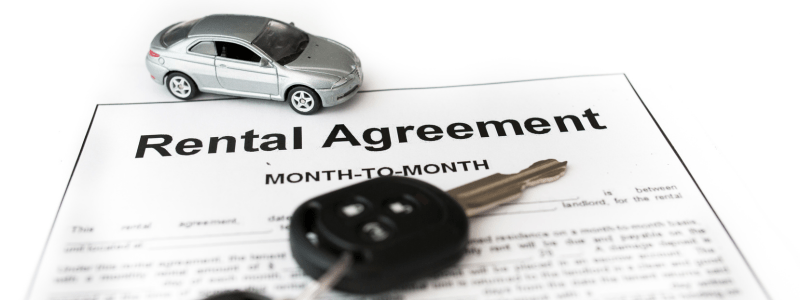
Renting a car is a convenient way to travel, but the deposit requirement often feels like a hefty and unwelcome burden. Understanding rental car deposits and learning how to avoid deposit on rental car can save you money and hassle. But why should you avoid deposits? Simply put, avoiding deposits can free up funds that would otherwise be locked away, reduce the stress of securing a larger credit card limit, and streamline your rental process.
Research Rental Companies
When planning to rent a car, start by researching different rental companies. Not all rental agencies have the same policies, and some may offer no-deposit options.
Compare Different Companies
Spend some time comparing rental car companies. Check their websites or call their customer service to ask about their deposit policies. Major companies like Enterprise, Hertz, and Avis might have varying requirements based on location and rental duration.
Look for No-Deposit Policies
Certain companies or specific locations might have no-deposit policies. Independent or smaller rental companies are more likely to offer flexible terms to attract customers.
Leverage Loyalty Programs
Many rental companies offer loyalty programs that come with perks, including the possibility of waiving deposits.
Benefits of Loyalty Programs
Loyalty programs often provide regular customers with benefits such as free upgrades, faster service, and no-deposit rentals. Signing up for these programs is typically free and can save you a lot of money in the long run.
How to Sign Up
Signing up is usually as simple as filling out a form on the rental company’s website. Once you’re a member, ensure you use the same account every time you rent to build your status.
Use Credit Card Benefits
Some credit cards offer benefits that can help you avoid rental car deposits.
Credit Cards with Rental Insurance
Certain credit cards provide rental car insurance as a benefit, which might reduce or eliminate the need for a deposit. Check with your credit card issuer to understand your benefits.
Credit Cards That Waive Deposits
There are credit cards specifically designed to waive rental car deposits. Cards like American Express Platinum or Chase Sapphire Preferred often come with rental car benefits.
Choose Smaller, Local Companies
Smaller, local rental companies might offer more flexibility in their policies compared to larger chains.
Advantages of Local Companies
Local companies may be more willing to negotiate and offer no-deposit rentals to gain your business. They often provide personalized service and better customer care.
Potential Drawbacks
However, smaller companies might have a smaller fleet or less availability. Always read reviews and ensure they are reputable before booking.
Book Through Third-Party Websites
Third-party booking sites can be a treasure trove of deals and no-deposit rental options.
Finding Deals Online
Websites like Kayak, Expedia, and Priceline often have special deals that include no-deposit options. They aggregate multiple offers, making it easier to compare.
Trustworthy Third-Party Sites
Stick to well-known and reputable booking sites to avoid scams. Always read the fine print to ensure you understand the rental terms.
Check for Promotions and Discounts
Promotions and discounts can sometimes be your ticket to a no-deposit rental car.
Seasonal Offers
During certain times of the year, rental companies offer promotions that include waiving deposits. Keep an eye out for these deals, especially during holidays and off-peak seasons.
Special Membership Discounts
Memberships in organizations like AAA can provide you with special rental car discounts, including no-deposit options.
Negotiate Directly with the Rental Company
Negotiation can sometimes yield surprising results, including avoiding a deposit.
Tips for Effective Negotiation
When negotiating, be polite but firm. Explain your situation and ask if there’s a way to waive the deposit. Mentioning loyalty, long-term rentals, or previous experiences with the company can help.
What to Ask For
Ask about alternative options like using a different form of security or a smaller deposit amount. Sometimes flexibility is just a conversation away.
Consider Car-Sharing Services
Car-sharing services are an alternative to traditional car rentals and often don’t require deposits.
Difference Between Car-Sharing and Car Rental
Car-sharing services like Zipcar or Turo allow you to rent cars on an hourly or daily basis without the need for hefty deposits. They often have more flexible terms.
Popular Car-Sharing Services
Explore services like Zipcar, or Turo. These platforms usually require a membership, but they often come with significant benefits including no-deposit rentals.
Join Auto Clubs
Auto clubs can provide benefits that include no-deposit car rentals.
Benefits of Auto Club Memberships
Membership in auto clubs like AAA can come with a range of benefits, including discounts and no-deposit rental options. These clubs often have partnerships with rental companies.
Auto Clubs That Offer No-Deposit Rentals
AAA and other auto clubs frequently offer their members exclusive deals on car rentals that waive deposits.
Look for Pay Later Options
Some rental companies offer pay-later options, which can sometimes mean no deposit is required upfront.
Understanding Pay Later Policies
Pay later means you reserve the car and pay when you pick it up. This can sometimes mean a smaller or no deposit is required.
Pros and Cons of Pay Later
While convenient, pay later options might come with higher overall costs. Always check the terms and ensure they fit within your budget.
Use a Rental Car Broker
Rental car brokers can help you find the best deals and avoid deposits.
How Rental Car Brokers Work
Brokers work by negotiating deals with multiple rental companies. They can often secure terms that individuals cannot.
Choosing a Reliable Broker
Look for brokers with good reviews and a history of successful transactions. Companies like Auto Europe or Rental Cars are reputable and often find great deals.
Provide Alternative Security
If a deposit is unavoidable, offering alternative security might be a solution.
Using Other Forms of Collateral
Sometimes, companies accept other forms of collateral like a prepaid card or travel insurance.
Pros and Cons
This option can help avoid traditional deposits, but it might come with its own set of terms and conditions.
Understand Rental Agreements

Reading the fine print can prevent surprises and help avoid deposits.
Key Clauses to Look For
Look for clauses about deposits, insurance, and payment terms. Understanding these can help you negotiate better terms.
Avoiding Hidden Fees
Rental agreements often have hidden fees. Make sure you’re aware of all potential charges before signing anything.
Conclusion
Avoiding a rental car deposit is possible with a bit of research and negotiation. By leveraging loyalty programs, credit card benefits, smaller companies, third-party websites, promotions, and more, you can save money and stress. Always read the fine print and negotiate directly with rental companies when possible. Happy travels!
FAQs
1. Can I rent a car without a credit card deposit?
Yes, some rental companies offer no-deposit rentals, especially if you use a credit card with rental benefits or belong to a loyalty program.
2. Are no-deposit rental car options more expensive?
Not necessarily. While some no-deposit options might have higher daily rates, many can be found at competitive prices, especially through promotions or loyalty programs.
3. How does insurance play a role in rental car deposits?
Having rental car insurance through your credit card or a third party can sometimes eliminate the need for a deposit, as the company feels more secure.
4. What should I do if I can’t avoid a deposit?
If a deposit is unavoidable, ensure you understand the terms and get a receipt. Using a credit card for the deposit can also offer additional protection.
5. Are there risks associated with no-deposit car rentals?
While convenient, no-deposit rentals can come with stricter terms or higher fees for damage. Always read the rental agreement carefully.
For further insights into effective financial management, check out our article on WHAT IS BUDGETING AND WHY IS IT IMPORTANT?
